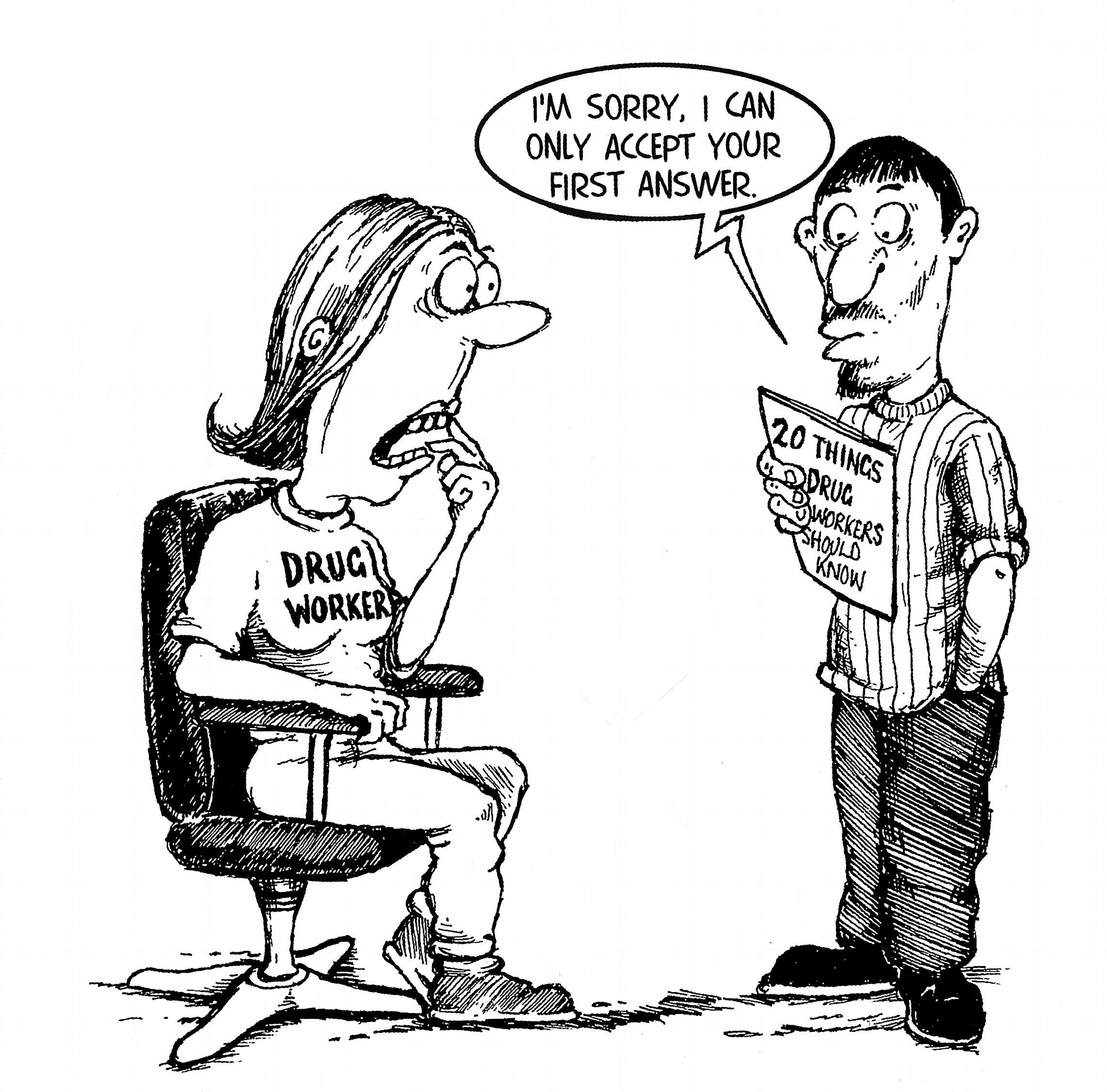
3 minute read
Syringe Exchange Schemes
The first, which I’ve already mentioned, is ‘motivational interviewing’, which is a technique used to help you identify the things that you really do consider a problem, and the extent to which you’re prepared to work to change those problems. People approaching treatment aren’t necessarily ready at that point to commit wholeheartedly to something like abstinence treatment, …don’t worry about and so motivational interviewing can help hurting the counsellor’s both client and counfeelings. The service is sellor to identify that there to meet your window of opportunity and also come up with needs, not theirs… strategies for coping with your problems in
the interim period. The other model that is proving to be useful is called ‘cognitive behavioural therapy’. This is a way of helping people to identify the errors in their thinking that make them feel as though using drugs will help them, when all the evidence is actually that they are really doing them more harm than good. Once this has been achieved, it can then suggest a range of techniques that people can use to try and break the habits they’ve built up over years of using drugs. Counselling can also play another important role in addressing drug problems. Many people who have been physically or sexually abused in their childhood find that they engage in various forms of compulsive or self-destructive behaviour. If you fall into this category, and you feel the need to address these issues before you can move on in your life, it may be that you feel the need for a specialist counsellor to deal with these issues. A word of caution: there are some drugs counsellors who feel competent to tackle difficult and complex issues of this nature, despite a lack of adequate training in this area. If you just want a general chat about these issues, then such a counsellor might well be suitable for your needs. If, on the other hand, you feel that you need something more specialized, you should ask if you can be referred to someone who has had specialized training in this area. Don’t feel shy or embarrassed about this, and don’t worry about hurting the counsellor’s feelings. The service is there to meet YOUR needs, not theirs. Ask them about their training and their qualifications – not just as a drugs worker, but as a specialist counsellor. Ask them about the counselling model that they intend to use, and why. If they cop out by saying they’ll be ‘eclectic’ then ask about which models they’ll draw on and why. If you feel that your counsellor isn’t adequately qualified, isn’t using an appropriate model, or just isn’t someone that you feel comfortable talking to, then explain your concerns, to the service manager if necessary, and ask if there isn’t someone else that you can see instead.
Up until the mid 1980’s, almost all drug services saw their sole goal as helping the client to achieve abstinence, either through persuasion or coercion or some mixture of the two. However, when HIV and AIDS was identified among injecting drug users, the government realized that AIDS was a much greater threat to the health of both the individual and the community than drug use is, and so syringe exchange schemes were established across the UK.
Although their primary purpose is the prevention of HIV, AIDS and other blood-borne viruses like Hepatitis C, many syringe exchange schemes offer more than just free needles and syringes, swabs, tourniquets, citric, etc. Like advice and information projects, they act as a first point of contact and can offer advice and referral to other services. Many will also offer a primary health care service, or at the very least, examination by a nurse who can then refer you on to another service for treatment.
Their main purpose though, is to act as a nonjudgemental, low-threshold syringe distribution service, and so anyone who is injecting, whether that be occasionally or regularly, whether they





